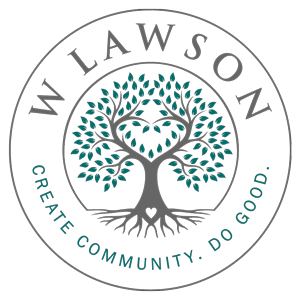
Social Factors of Longevity
A recent article from The Harvard Gazette highlighted findings of a study on longevity conducted by Massachusetts General Hospital and the University of California, San Francisco. The study dips a toe into the very deep and complex waters of the non-medical aspects of longevity. The social factors of our wellness are not measured with the precision given to medical conditions like hypertension, diabetes, or hyperlipidemia. Medical conditions have treatments that are rigorously researched, tested, and administered, many times creating widely accepted understandings of the impact such conditions have on humans. Even more so, medical conditions come with less stigma than social factors of living.
I was diagnosed with pre-diabetes over 15 years ago and upgraded to Type-2 diabetes a few years later, adding medication that now keeps my glucose levels within the range of “controlled”. About five years ago, I was diagnosed with both hypertension and hyperlipidemia. My family medical history gave me every indication that high blood pressure and high cholesterol were a likelihood for me. But the overachiever in me manifested these medical conditions a good 5-10 years earlier than even my genetics would have predicted. I take medically prescribed treatments for all these conditions.
The Mass General/UCSF study, which analyzed information from over 8000 adults aged 65+, identified eight key social factors the help predict human longevity and independent living.
Of the 183 possible social predictors, these factors were most closely correlated with end of life within four years:
- Poor neighborhood cleanliness
- Low perceived control over financial situation
- Meeting with children less than yearly
- Not working for pay
- Not active with children
- Not volunteering
- Feeling isolated
- Being treated with less courtesy or respect
There are several themes within these factors, but I would observe these eight factors boil down to two distinct categories: human connection and human autonomy. Other descriptors might include social prescription and person-centeredness or life enrichment and person-directedness or, even more succinctly, humanity.
The findings within this study point to critical aspects of human life that somehow become more elusive as we grow older. Loss of autonomy and increased isolation from loved ones were exacerbated to the most severe levels during the global pandemic. They left an undeniable call to action for our work in the field of aging. We have an aging services infrastructure that CREATES less autonomy, less belonging, and less connection.
To mitigate and undo these systemic issues within aging, we must commit to equity in aging by creating communities of inclusion and belonging for all that seek it. And not just for older adults alone but for all they love because the human condition was never intended to be one of distance and loss of self but one of continuous momentum, love, and togetherness. Diversity brings together intergenerational, multi-cultural, differently abled and identified humanity for the betterment of all seeking belonging.
Human longevity is inextricably tied to and greatly dependent upon inclusion.
Source: https://news.harvard.edu/gazette/story/2023/02/how-long-will-you-live-8-social-factors-are-key/?utm_source=SilverpopMailing&utm_medium=email&utm_campaign=Daily%20Gazette%2020230210%20(1)


